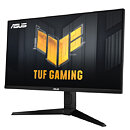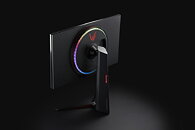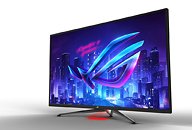
NVIDIA Releases GeForce 572.60 WHQL with Fix for RTX 50-series Black Screens and BSODs
NVIDIA today released the GeForce 572.60 WHQL Game Ready drivers. These drivers come with optimization for "Monster Hunter Wilds," and the DLSS 4 update of "Naraka Bladepoint." The drivers also introduce G-SYNC support for dozens of monitor models listed below. This release is highly recommended to users of GeForce RTX 50-series "Blackwell" graphics cards, as they fix the various random black screen issues and BSOD system halts being encountered by these users. They also fix audio quality issues being encountered by all users when using high refresh-rate displays with DSC on DisplayPort 1.4, which are caused due to OS-level dynamic tick rate.
Also fixed are issues where applications encounter display/image corruption on pixellated 2D patterns. Unexpectedly low performance on RTX 50-series GPUs in VRay 6 has been fixed. The drivers also address application crashes and texture compression issues encountered by Adobe Substance 3D. A bug that caused some SteamVR apps stuttering with RTX 50-series GPUs has been fixed.
DOWNLOAD: NVIDIA GeForce 572.60 WHQL
Also fixed are issues where applications encounter display/image corruption on pixellated 2D patterns. Unexpectedly low performance on RTX 50-series GPUs in VRay 6 has been fixed. The drivers also address application crashes and texture compression issues encountered by Adobe Substance 3D. A bug that caused some SteamVR apps stuttering with RTX 50-series GPUs has been fixed.
DOWNLOAD: NVIDIA GeForce 572.60 WHQL
































































